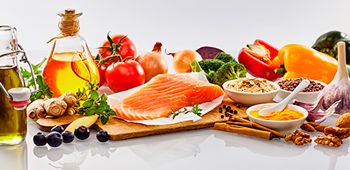A healthy, well-balanced diet is something that everyone should have access to in order to lead the best lifestyle possible. Whole foods, such as fruit and vegetables, lean protein, grains, and legumes are ideal components for a person’s day-to-day meals; not only do they help maintain a healthy weight, but following a clean diet can reduce the risk of developing certain illnesses or conditions that can be damaging to a person’s well-being.
However, following a clean diet and sticking to whole foods is not as easy as one may think. There are several factors that contribute to people not having access to healthy meals, such as time constraints, food shortages, and a lack of nutritional education. This last factor can push people to think that some foods are inherently bad and to avoid them completely without giving it a second thought. One of the consequences that may arise due to these types of actions is that a person doesn’t get the necessary nutrients needed for a healthy lifestyle.
A healthy diet also means consuming a recommended amount of micro and macronutrients per day, and while these portions may look different according to your goals and needs, it’s likely that your health plan does not include high cholesterol foods. It may include some options that will help you get the healthy amount of cholesterol needed for your body to build cells, but it’s important to differentiate which are better than others. At LIMARP®, we offer integral treatments that include detailed meal plans made just for you. Our medical team, led by Dr. Liza María Pompa González, is fully equipped to help you lead a healthy lifestyle by providing guided assistance when it comes to dieting and exercising. If you’re looking to reduce the amount of high cholesterol foods you consume in your daily life the nutritionists will speak at length with you about your current diet and your goals in order to create a new diet plan.
This article will focus on high cholesterol foods, the difference between good and bad cholesterol, and some of the ways you can reduce your intake if it’s considerably high.
The information discussed in this article is general and may not apply to everyone, which is why we recommend you speak to a nutritionist first if you’re interested in making significant changes to your diet.
What is cholesterol?
To begin, it’s important to understand that cholesterol is not bad and, in regulated amounts, it’s actually good for your body. Cholesterol is a waxy substance that circulates in the blood and your body needs it “to build cells and make vitamins and other hormones”[1]. There are also two types of cholesterol, LDL and HDL; the former is what we identify as bad cholesterol, while the latter is defined as good. The good type of cholesterol is produced by your body, more specifically in your liver, and according to the CDC[2], high amounts of HDL can reduce your risk of heart disease and stroke.
On the other hand, LDL cholesterol mostly comes from animal products, such as meat, poultry, and dairy; as well as some oils usually found in baked goods, such as palm oil, palm kernel oil, and coconut oil. Foods with high cholesterol are also high in saturated and trans fats, which can cause your liver to make more cholesterol than it otherwise would.
If your cholesterol levels rise, you can develop fatty deposits in your blood vessels and if these deposits grow, it will be difficult for your blood to flow through your arteries. In the worst of cases, those deposits can break and form a clot that causes a heart attack or stroke. There are no symptoms for high cholesterol[3], which is why it’s important to get blood tests in order to know if your levels are high or low.
The risks of having high cholesterol are wider known and some of them include cardiovascular diseases, atherosclerosis, strokes, diabetes, and high blood pressure. To lower high cholesterol levels, your doctor may recommend lifestyle changes, such as modifying your diet, adding exercise to your daily routine, and quitting smoking, if such is the case. Other types of treatments can include medications or home remedies. However, the risks of having lower than normal cholesterol are lesser known and study[4] has found a link between depression and low cholesterol levels, but not much is known aside from that. It’s true that it’s better to have low cholesterol than a high one, but be sure to consult your doctor if you’re experiencing negative symptoms or if your tests present any abnormalities.
How much cholesterol should be consumed per day?
If you’re at risk of developing heart disease or are already struggling with other health issues related to diabetes, you should not consume more than 200 milligrams of cholesterol per day. Keep in mind that most high cholesterol foods include saturated fats and added sugar, so make sure that you’re getting your cholesterol from lean protein or to avoid certain foods altogether. If you’re not at risk and keep an active lifestyle, there’s not a specific amount of cholesterol you should consume per day, but it’s important to still be mindful if you’re following a specific diet or working toward a specific goal.
You should always speak to a nutritionist first if you’re looking to change your diet. They can guide you and provide information about the foods you should avoid and what you can eat instead. The suggestions we provide in this article are general ones, so make sure to visit a nutritionist so they can go over your specific case before implementing a new diet plan.
High cholesterol foods: What’s good and what to avoid
If you’re looking to reduce the amount of high cholesterol foods from your diet, you should limit or remove the following products:
- Red meats and high fat dairy products
- Deep-fried foods
- Fast food and pre-cooked meals
You may notice that eggs aren’t on this list and this is because, contrary to popular belief, they’re actually a good source of cholesterol. Research[5] has shown that eggs don’t raise cholesterol levels and that eating them may boost heart-protective HDL cholesterol. Other studies[6] have shown that it’s perfectly safe for healthy people to eat up to three eggs a day.
There are also other foods that are a good source of cholesterol, such as small portions of cheese, shellfish, yogurt, and pasture-raised steak. These foods may also be helpful if you need to raise your cholesterol levels or improve other aspects of your diet.
Contact Us to Learn More
If you want to know more about high cholesterol foods and need guidance when it comes to your diet, schedule an appointment with one of our doctors. We can help determine the right treatment for you. Contact us online anytime or give us a call at (619) 373-0229.
References
- [1] “What is Cholesterol?”. https://www.heart.org/en/health-topics/cholesterol/about-cholesterol. (Accessed September 24, 2022).
- [2] “LDL and HDL Cholesterol: “Bad” and “Good” Cholesterol”. https://www.cdc.gov/cholesterol/ldl_hdl.htm. (Accessed September 24, 2022).
- [3] “High cholesterol”. https://www.mayoclinic.org/diseases-conditions/high-blood-cholesterol/symptoms-causes/syc-20350800. (Accessed September 24, 2022).
- [4] “Women With Low Cholesterol may be at Risk for Depression and Anxiety”. https://corporate.dukehealth.org/news/women-low-cholesterol-may-be-risk-depression-and-anxiety. (Accessed September 24, 2022).
- [5] Blesso CN, Andersen CJ, Barona J, Volek JS, Fernandez ML. Whole egg consumption improves lipoprotein profiles and insulin sensitivity to a greater extent than yolk-free egg substitute in individuals with metabolic syndrome. Metabolism. 2013 Mar;62(3):400-10. doi: 10.1016/j.metabol.2012.08.014. Epub 2012 Sep 27. PMID: 23021013.
- [6] Drouin-Chartier J, Chen S, Li Y, Schwab A L, Stampfer M J, Sacks F M et al. Egg consumption and risk of cardiovascular disease: three large prospective US cohort studies, systematic review, and updated meta-analysis BMJ 2020; 368 :m513 doi:10.1136/bmj.m513


